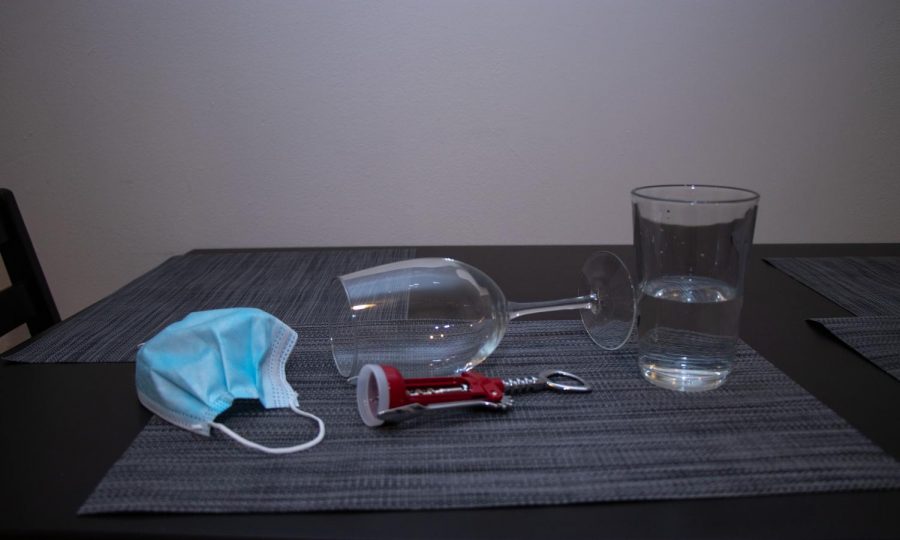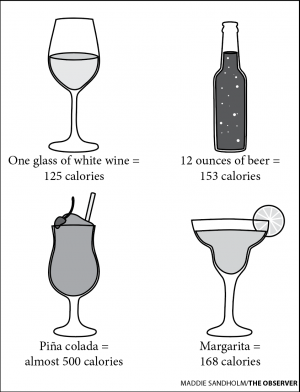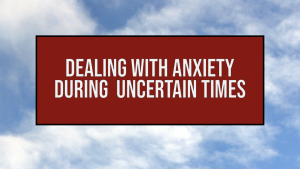You Booze, You Lose: Why Alcohol Shouldn’t Be Your Only Pandemic Coping Strategy
A recent survey revealed an increase in alcohol consumption among adults between 2019 and 2020. Due to the potentially adverse health effects of heavy drinking, other coping mechanisms may be a better option.
November 13, 2020
In response to the pandemic, many of us have changed our habits to fit life under quarantine. Some of these, such as how much Americans drink alcohol, are changing for the worse. In these highly anxiety-inducing times, it’s natural for individuals to form new coping mechanisms, but drowning your stir-craziness in alcohol may do more harm than good.
A survey recently published in the Journal of the American Medical Association indicated an increase of alcohol consumption among adults. In particular, three out of four American adults consumed alcohol one more day per month on average when compared to 2019 data. The results of the survey also noted an increase in heavy alcohol consumption.
The researchers ran this survey in response to the increase in alcohol sales following the pandemic: Compared to one year prior, sales of alcohol were 54% higher the week of March 21. In 2020, online alcohol sales have jumped 262% compared to 2019.
Though this article does not focus on college-aged students, the risk of increased alcohol consumption can’t be discounted for the student population. A 2018 national survey of college students found that 54.9% of full-time undergraduates aged 18 to 22 drank in the month leading up to the survey. The survey also reported that 36.9% of college students engaged in binge drinking — consuming more than five drinks in one sitting.
Two negative health outcomes associated with drinking might be especially detrimental during the pandemic: The WHO states that alcohol can weaken the immune system and impair good decision-making.
The National Institute of Alcohol Abuse and Alcoholism (NIAAA) issued a warning for the parents of college students in August 2020 before the start of the new semester. “Certain aspects of college life, such as unstructured time, the widespread availability of alcohol, inconsistent enforcement of underage drinking laws, and limited interactions with parents and other adults, can intensify the problem,” the NIAAA said.
On top of these circumstances, lockdown conditions can heighten the urge to drink, according to the World Health Organization (WHO). If you usually have alcohol in your home, it may become tempting to drink at times you typically wouldn’t. The WHO highly advises against drinking during your workday, and the same advice can be extended to college students during the school day.
In addition to curbing the urge to drink during the day, the WHO recommends against stockpiling alcohol. Having access to large amounts of alcohol may make it easier to binge drink. The most updated U.S. Dietary Guidelines for Americans states that women should only have one drink per day, and men should consume no more than two drinks per day, so keep this recommendation in mind when you purchase alcohol.
Though the urge to drink might be on the rise, the health hazards associated with drinking outweigh its benefits. Moreover, two negative health outcomes associated with drinking might be especially detrimental during the pandemic: The WHO states that alcohol can weaken the immune system and impair good decision-making.
Protecting yourself from COVID-19 requires being vigilant and adhering to social distancing measures. The NIAAA noted that when under the influence of alcohol, you might let your COVID-19 guard down, which can lead to contracting the virus yourself or spreading it to others.
The WHO also states that you shouldn’t ignore alcohol’s negative effect on the immune system. In place of using alcohol to cope, the WHO recommends exercising, which can have a positive impact on your immune system.
Since drinking alcohol is not the best way to cope with anxiety arising from the pandemic, explore healthier coping mechanisms like journaling or meditating. The Centers for Disease Control and Prevention has also enumerated general guidelines for dealing with stress in a healthy way. They recommend taking care of yourself by eating well, getting enough sleep and ensuring adequate exercise.
Of course, it’s possible to drink in a way that won’t negatively impact your health. What’s more, drinking within the guidelines of the NIAAA might be a welcome stress reliever at the end of a difficult day, but it’s very important to ensure that drinking, even if you’re doing it in moderation, is not your only coping strategy.















